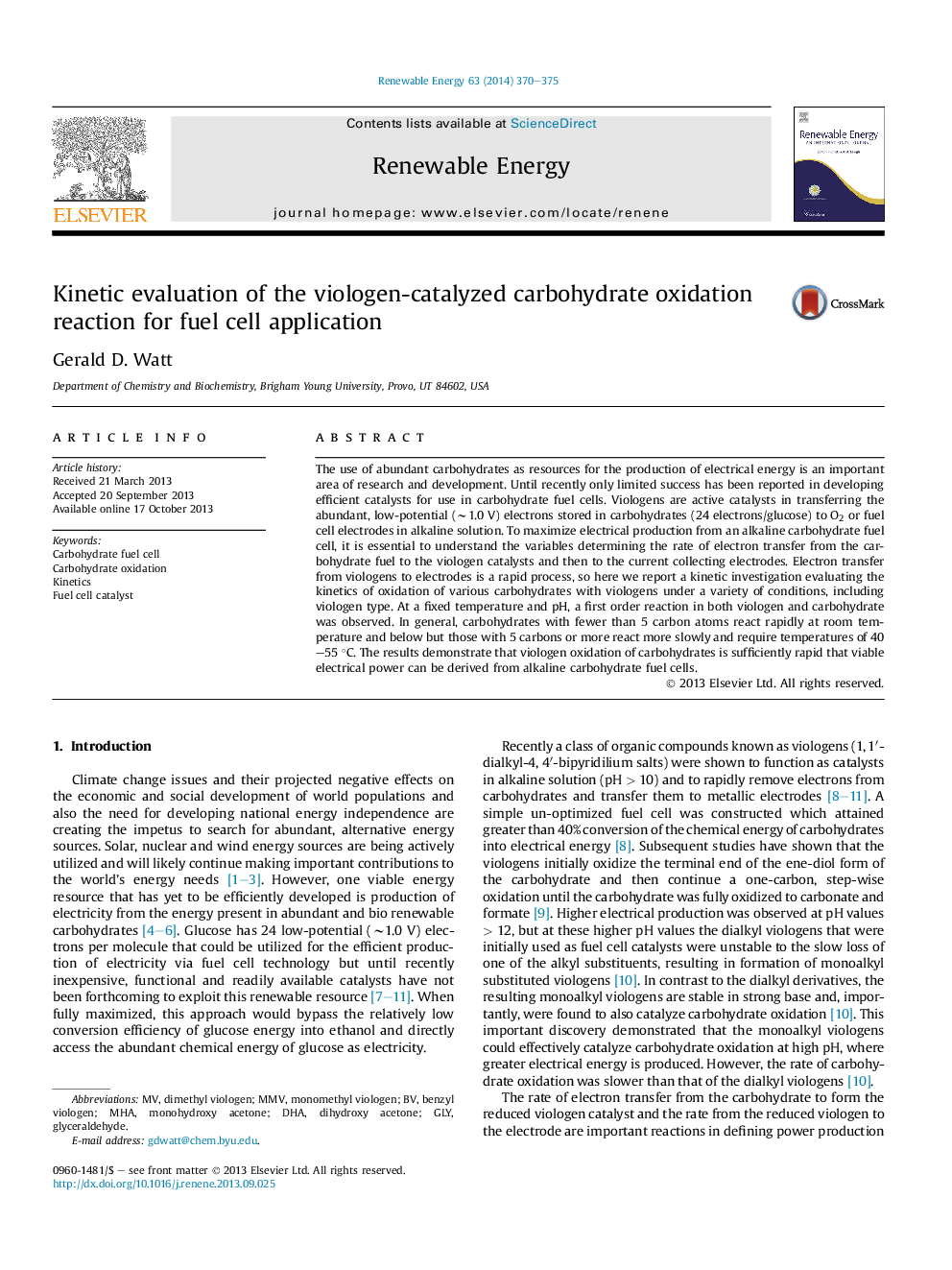| Article ID | Journal | Published Year | Pages | File Type |
|---|---|---|---|---|
| 6768874 | Renewable Energy | 2014 | 6 Pages |
Abstract
The use of abundant carbohydrates as resources for the production of electrical energy is an important area of research and development. Until recently only limited success has been reported in developing efficient catalysts for use in carbohydrate fuel cells. Viologens are active catalysts in transferring the abundant, low-potential (â¼1.0 V) electrons stored in carbohydrates (24 electrons/glucose) to O2 or fuel cell electrodes in alkaline solution. To maximize electrical production from an alkaline carbohydrate fuel cell, it is essential to understand the variables determining the rate of electron transfer from the carbohydrate fuel to the viologen catalysts and then to the current collecting electrodes. Electron transfer from viologens to electrodes is a rapid process, so here we report a kinetic investigation evaluating the kinetics of oxidation of various carbohydrates with viologens under a variety of conditions, including viologen type. At a fixed temperature and pH, a first order reaction in both viologen and carbohydrate was observed. In general, carbohydrates with fewer than 5 carbon atoms react rapidly at room temperature and below but those with 5 carbons or more react more slowly and require temperatures of 40-55 °C. The results demonstrate that viologen oxidation of carbohydrates is sufficiently rapid that viable electrical power can be derived from alkaline carbohydrate fuel cells.
Related Topics
Physical Sciences and Engineering
Energy
Renewable Energy, Sustainability and the Environment
Authors
Gerald D. Watt,
